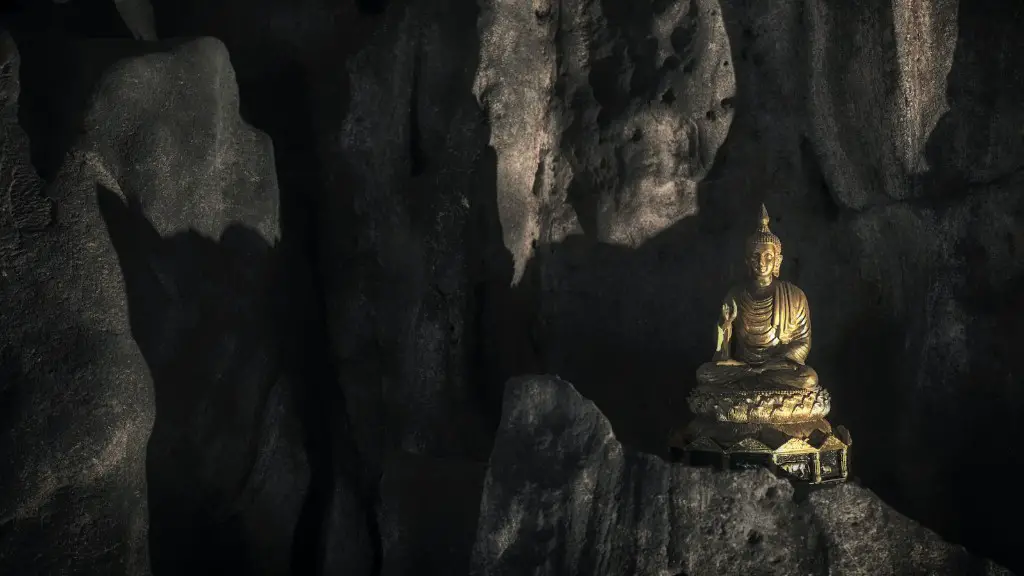Buddhism is a religion founded by Siddhartha Gautama, also known as the Buddha, in the early 6th century BC. The main principles of Buddhism are often referred to as the Four Noble Truths. These truths are that all life is suffering, that suffering is caused by desire, that suffering can be ended by eliminating desire, and that this can be achieved by following the Eightfold Path.
There are many different beliefs within Buddhism, but some of the more common ones are that all beings have the same Buddha nature, that there is no permanent self or soul, that karma affects rebirth, and that the goal of Buddhist practice is Nirvana.
Do the Buddhist believe in god?
Buddhism is a tradition focused on spiritual liberation, not theistic religion. The Buddha himself rejected the idea of a creator god, and Buddhist philosophers have argued that belief in an eternal god is a distraction for humans seeking enlightenment.
Buddhism is a religion based on the teachings of Siddhartha Gautama. The main principles of this belief system are karma, rebirth, and impermanence. Buddhists believe that karma is the result of one’s actions and that it determines one’s future. rebirth is the belief that after death, one is reborn into another form. impermanence is the belief that everything is constantly changing and that nothing lasts forever.
What are 5 basic beliefs of Buddhism
The Five Precepts are a set of guidelines for living a moral and ethical life. They are:
1. Refrain from taking life
2. Refrain from taking what is not given
3. Refrain from the misuse of the senses
4. Refrain from wrong speech
5. Refrain from intoxicants that cloud the mind.
These precepts provide a basic framework for living a good life. They remind us to be mindful of our actions and to always act with compassion and kindness.
Buddha’s teachings are said to be aimed at helping all sentient beings to achieve liberation from suffering. The core teachings of Buddhism include the Three Universal Truths, the Four Noble Truths, and the Noble Eightfold Path. These teachings provide a framework for understanding the nature of reality and how to achieve liberation from suffering.
What do Buddhist think about Jesus?
There are some high level Buddhists that have drawn analogies between Jesus and Buddhism. Dalai Lama stated in 2001 that “Jesus Christ also lived previous lives”, and added that “So, you see, he reached a high state, either as a Bodhisattva, or an enlightened person, through Buddhist practice or something like that”. Thich is another example of someone that has made similar statements.
In Buddhism, there is no concept of punishment or reward and there is no divine being who decides who goes to hell or heaven. There is merely the illusory results of our thought, words and deeds, which we call karma.
Is Buddhism a faith or religion?
Buddhism is a faith that was founded by Siddhartha Gautama (“the Buddha”) more than 2,500 years ago in India. Scholars consider Buddhism one of the major world religions, with about 470 million followers worldwide. The Buddha was born into a wealthy family but later renounced his life of luxury to search for truth. After years of study and meditation, he is said to have attained enlightenment, or nirvana. The Buddha then spent the rest of his life teaching the principles of Buddhism, which emphasize compassion, morality, and meditation.
Buddhism teaches that drinking or using other kinds of drugs can cause carelessness and should be avoided. This is because alcohol and drugs can impair our judgment and lead to harmful decisions. While moderate alcohol consumption is not discouraged, Buddhism teaches that we should be mindful of the potential dangers of overindulging. Strong Buddhist beliefs would therefore be expected to have a significant impact on alcohol use.
What do Buddhists believe happens after death
Death is not the end for Buddhists. It is seen as a natural part of the cycle of life, death and rebirth. After death, the soul is reborn into another body and goes through the same cycle again. The goal for Buddhists is to break out of this cycle and achieve liberation from suffering.
Food is an important part of Buddhist culture and tradition. All Buddhists follow the practice of conscious eating, which means paying attention to what you eat, how it affects your body and mind, and the impact it has on the environment.
Buddha advised monks to avoid eating 10 kinds of meat for self-respect and protection: humans, elephants, horses, dogs, snakes, lions, tigers, boars and hyenas. This is because Buddhism teaches that all life is connected and that we should show compassion to all beings. Eating meat is seen as causing harm to other beings and is therefore discouraged.
How do Buddhists worship?
Buddhists worship at temples or monasteries as a way to meditate and pray. Some also set up shrines at home to be able to worship privately. When worshipping, Buddhists offer fresh flowers, lights, and lamps, or burn fragrant incense. All of these acts are a way to show respect to the Buddha and make merit for the devotee.
Moral freedom, according to the Buddhists, lies in the ability of agents to form desires that are consonant with their needs and personal circumstances. In other words, what we desire is determined by our circumstances, and so we are not free to desire something outside of what is possible for us. This does not mean, however, that we are not free to act. The Buddhists believe in “free action” which is the ability to act in accordance with our desires. So even though our desires may be determined by our circumstances, we are still free to act on them.
Do Buddhists believe in karma
For Buddhists, karma goes beyond just this life. Bad actions from a past life can follow a person into their next life and cause bad effects. Even an enlightened one is not exempt from the effects of past karma. Westerners may see this as “bad luck”, but for Buddhists it is the result of actions in a past life.
Buddhism is a religion, a philosophy, or a set of beliefs and practices based on the teachings of the Buddha, or “Awakened One”—the title given to the Indian spiritual seeker Siddhartha Gautama after he attained enlightenment more than 2,600 years ago. Buddhism has many different schools and sects, and its followers practice a variety of rites and rituals. Central to Buddhist belief is the principle of “Dharma,” which can be roughly translated as “natural law” or “the way things are.” The Dharma is seen as a universal truth that pervades all of reality and is the goal of Buddhist practice. adherents of Buddhism strive to live in harmony with the Dharma and to awaken to its reality.
What is the Buddhist holy book?
The sayings of the Buddha were carried down through oral tradition after he died, ca 483 BCE, and were compiled into collections called suttas (Pali) or sutras (Sanskrit). These collections, plus the Vinaya Pitaka (monastic rules) and Abidhamma/Abidharma (philosophical texts), comprise the Buddhist Canon.
Yes, it’s true! Many Buddhists celebrate the holiday season, contrary to popular belief. Among Asian American Buddhists, three-quarters celebrate Christmas. On Dec 8, some Buddhists also observe Bodhi Day, which marks when the Buddha reached enlightenment. So if you’re looking for a holiday celebration, you might just find one at your local Buddhist temple!
Warp Up
There are many different sects of Buddhism, and as such, there are many different Buddhist beliefs. In general, however, Buddhists believe in the Four Noble Truths: that suffering exists; that suffering is caused by attachment and desire; that suffering can be ended; and that there is a path leading to the end of suffering. Buddhists also believe in karma, or the idea that our actions have consequences that affect us in this life and in future lives. Additionally, Buddhists seek to achieve nirvana, or a state of enlightenment in which the suffering cycle is broken and one is released from the cycle of rebirth.
There are many different beliefs within the religion of Buddhism, but some of the most common beliefs are that all beings have Buddha-nature, that karma affects rebirth, and that the goal of life is to achieve nirvana. These beliefs, and others, create a foundation for the religious practice of Buddhism.




